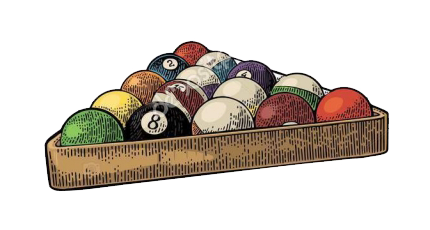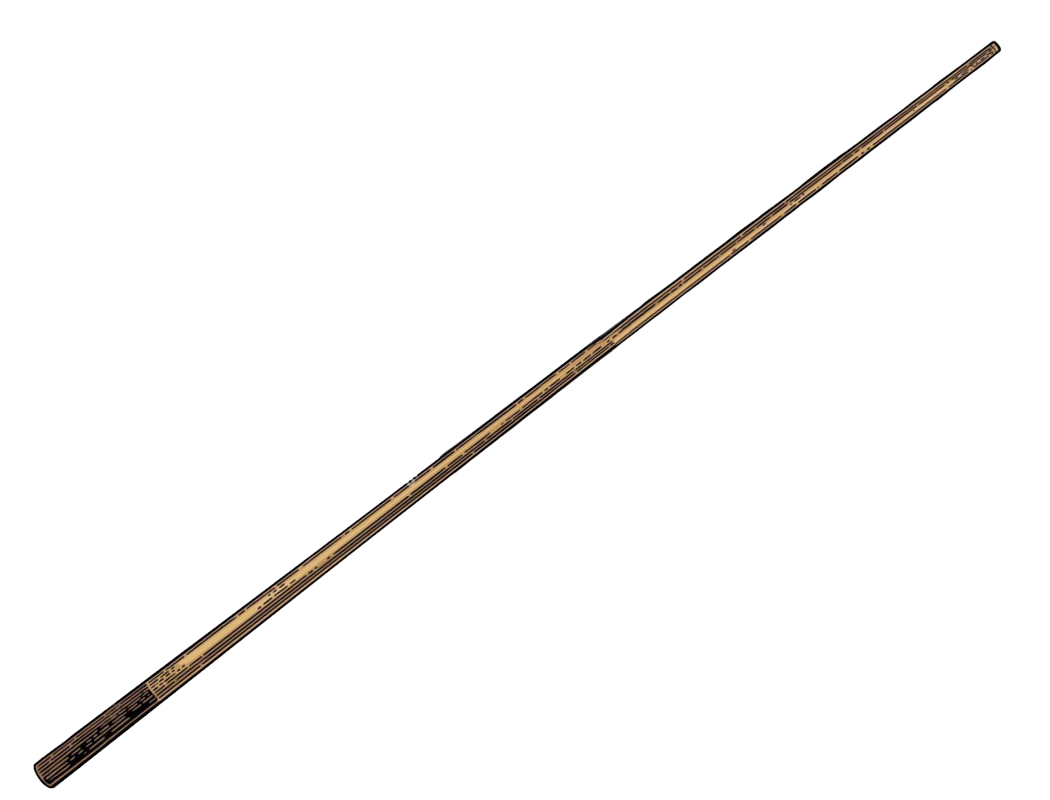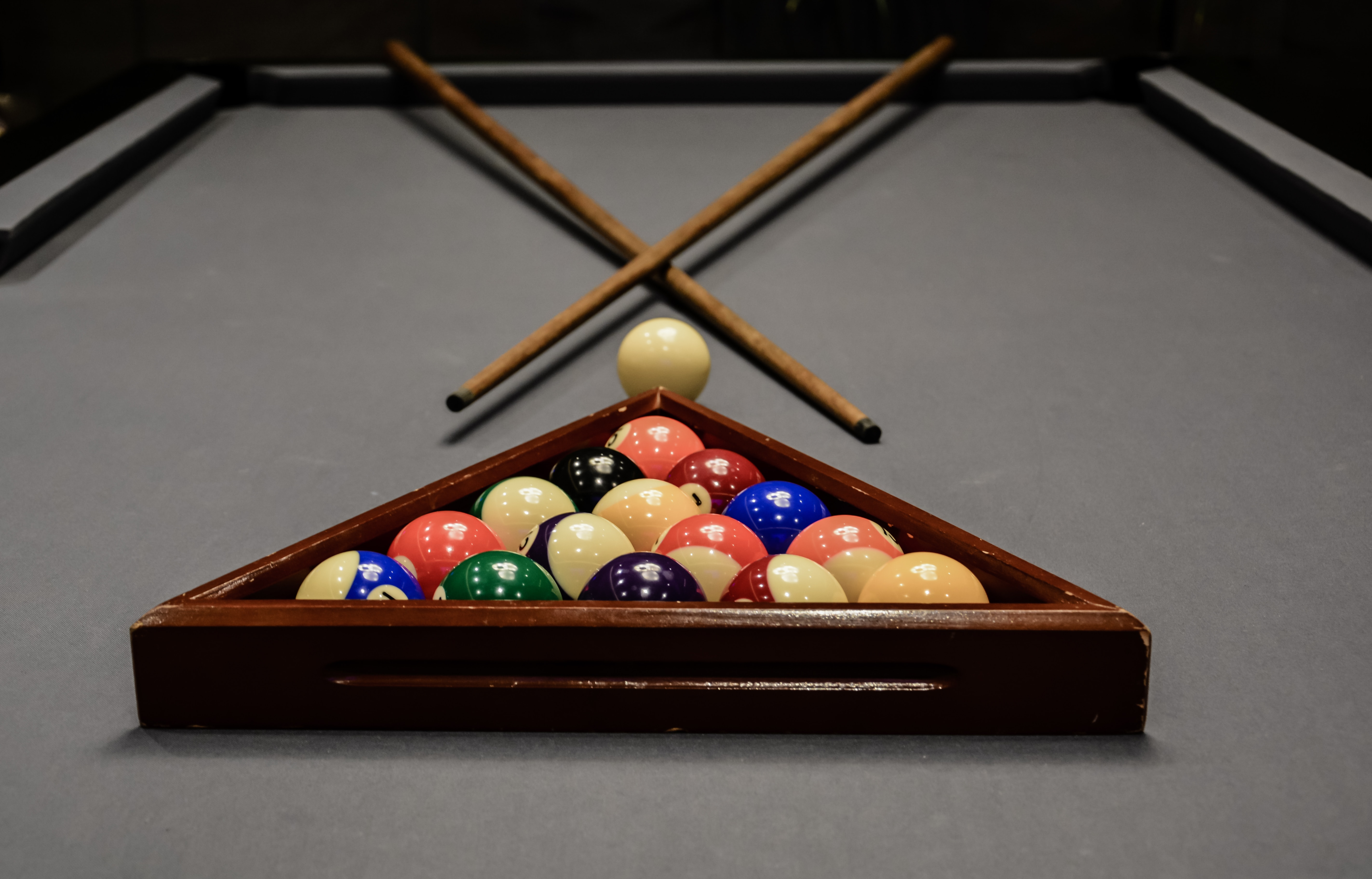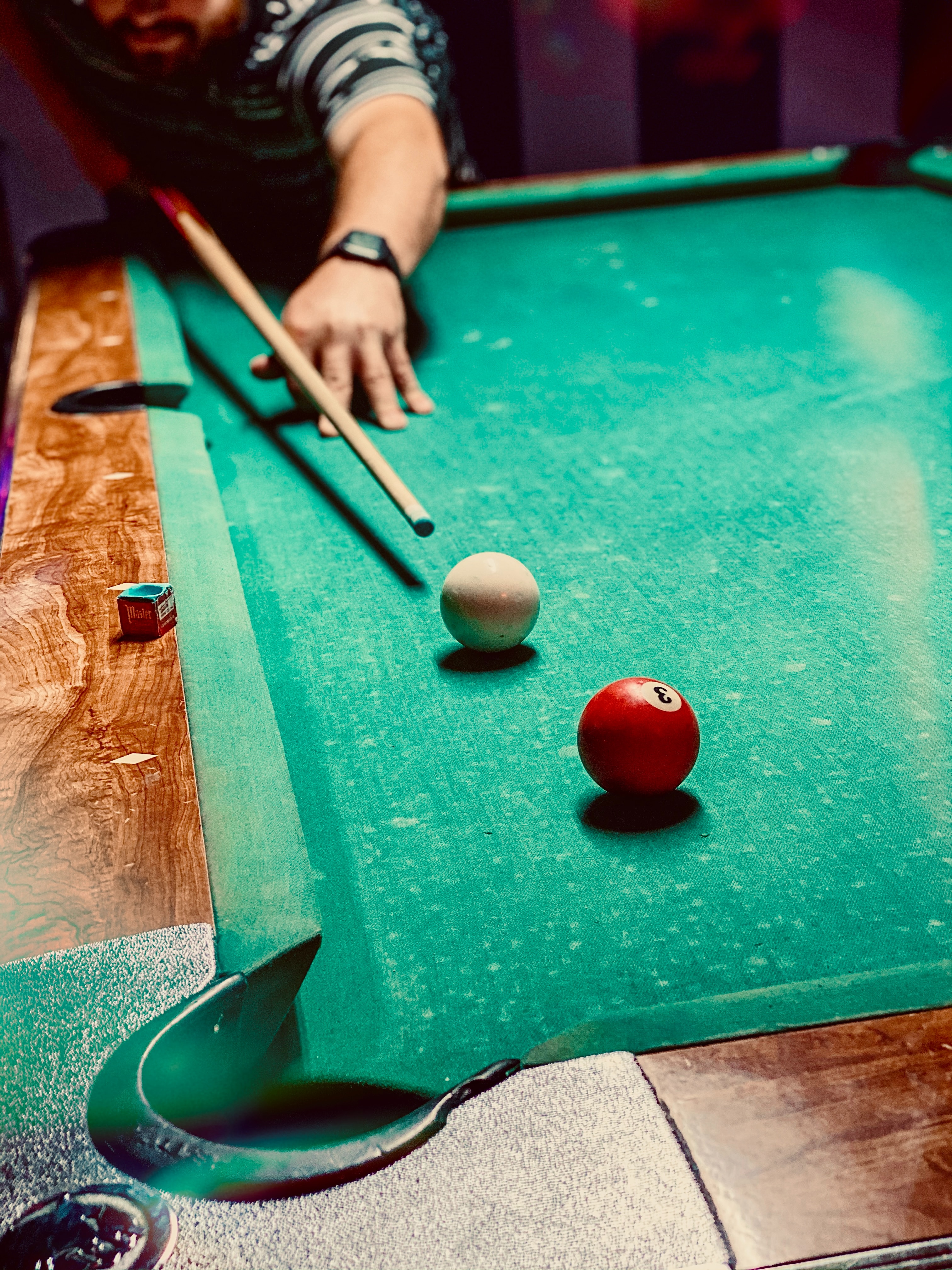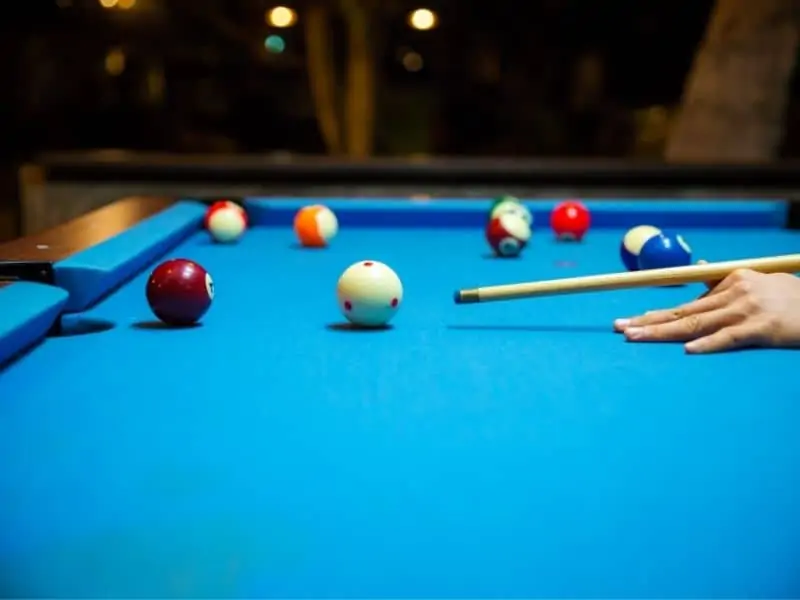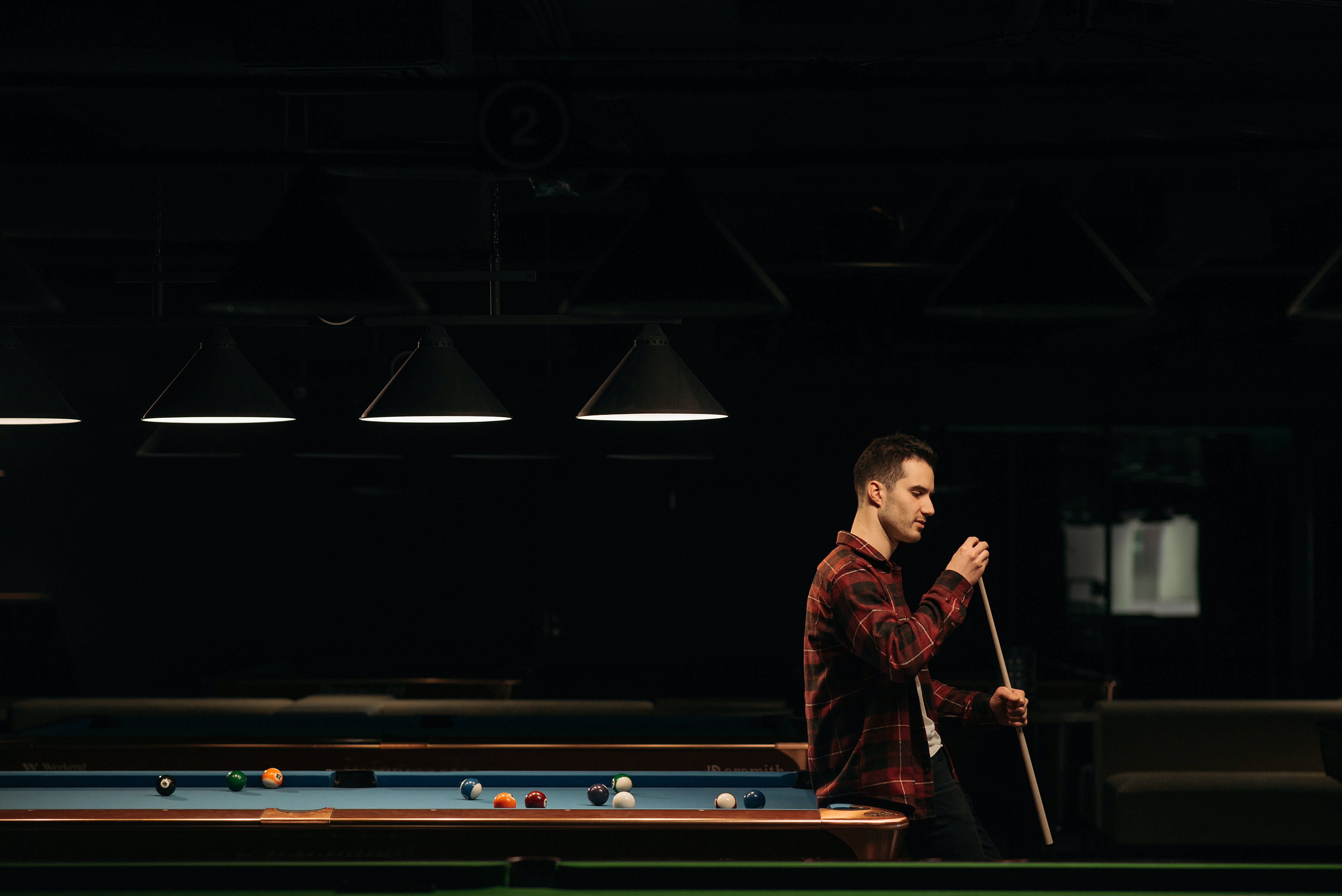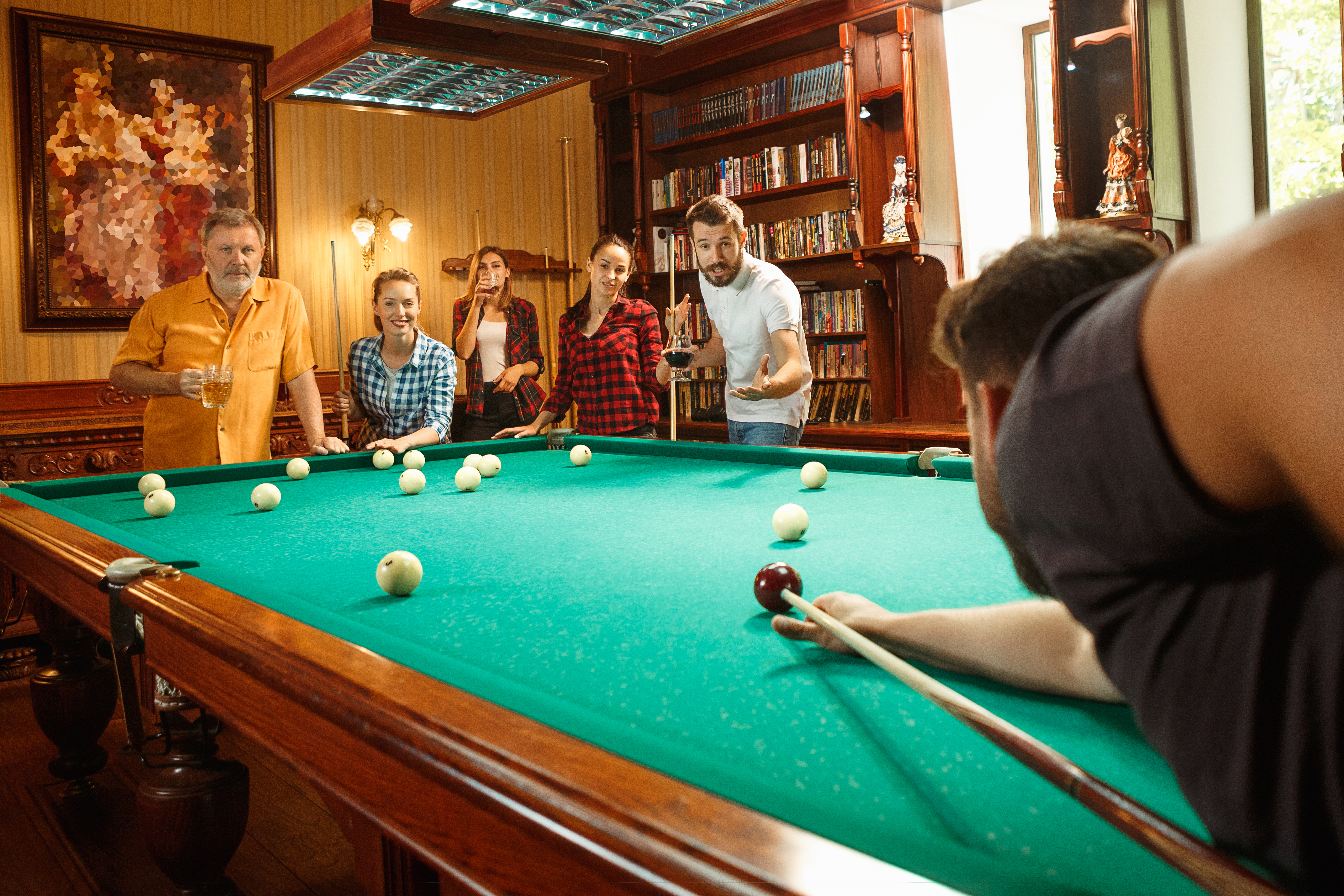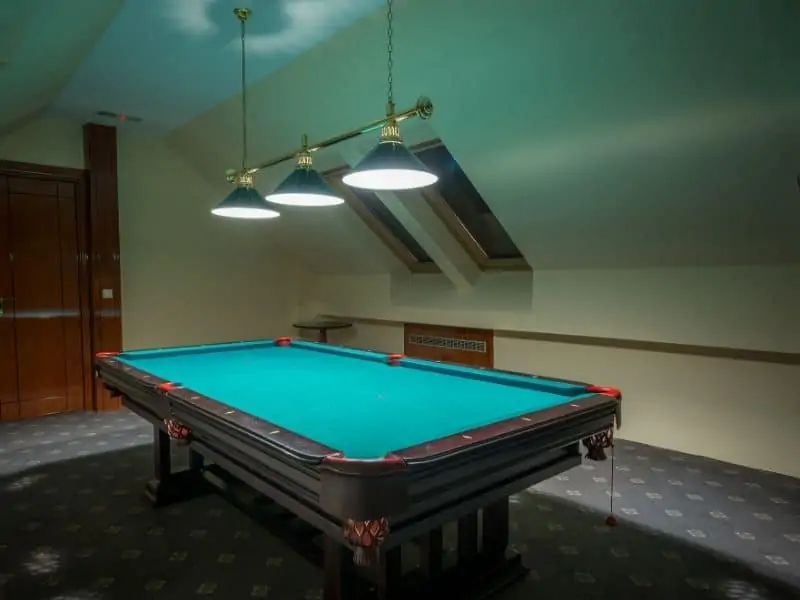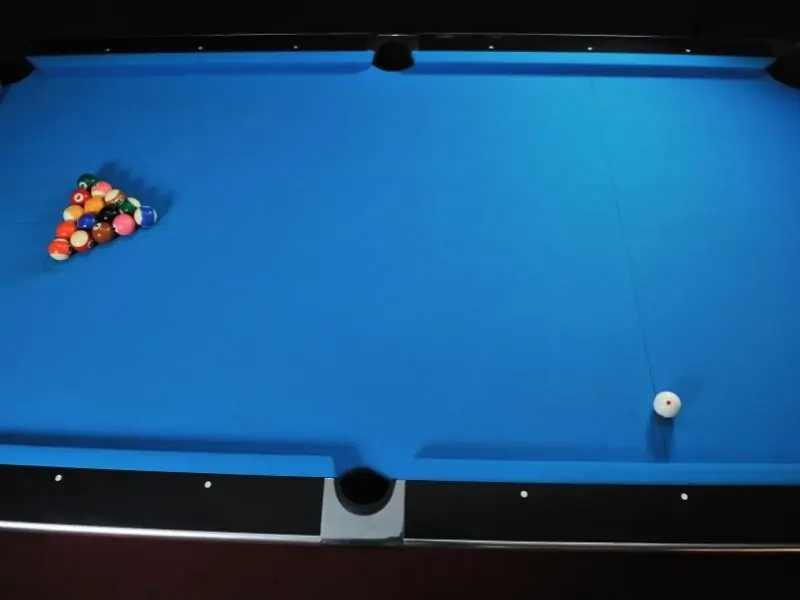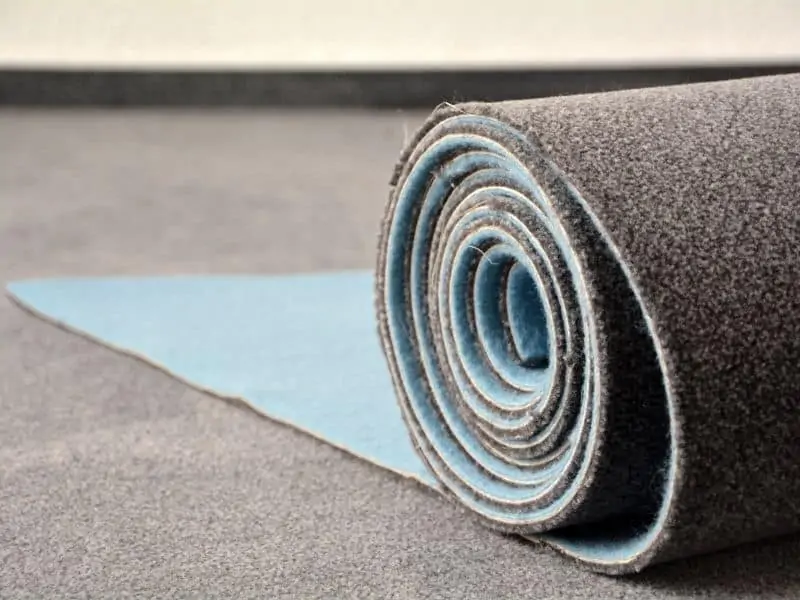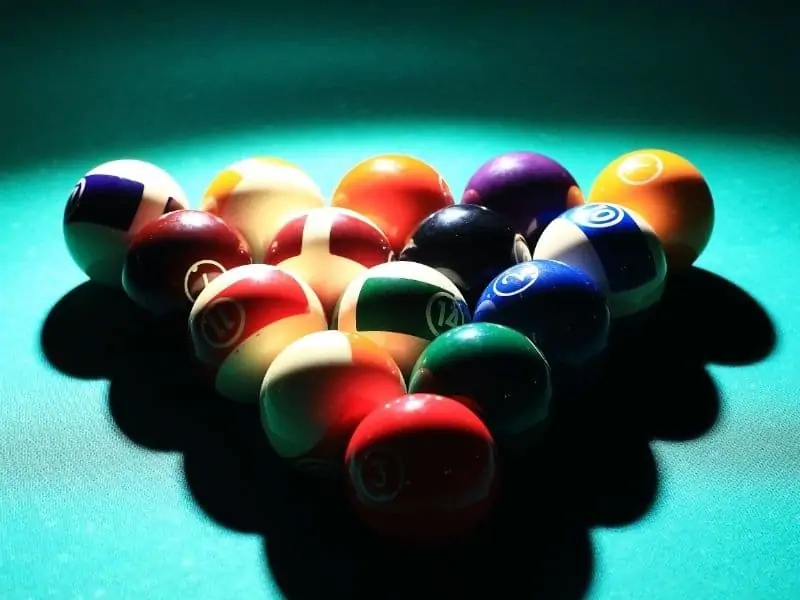Regardless of your skill level as a pool player, having a good cue to use is vital. A good cue will not only help you improve your skills as a player, it will also help build confidence at the table, knowing that you have a solid piece of equipment to rely on. But finding a good pool cue isn’t always easy. It’s not always cheap, either. So, how much does a good pool cue cost?
For beginners, a good pool cue will cost around $100-$150. However, more advanced players will have to spend more to get a good cue relative to their skill level. An advanced player can expect to spend at least $300-$500.
Why such a big difference in price? Expensive pool cues tend to be of higher quality, made of better materials, and play better than their budget friendly counter parts. This is not to say that a cue under $200 wont perform well. It just wont perform on the level that a professional pool player may need it to. Likewise, if you’re a beginner, you wont need all the features that professional players have standard on their cues.
So, whether your a novice or expert, hobbyist or professional, having a good, dependable cue that fits your level of skill is essential to growing your skills and improving your game. If you’d like to know more about what makes a pool cue good, what affects the price of pool cues, and how to find one that’s a good fit for you, keep reading to learn more!
What Makes a Pool Cue Good?
First things first. A good pool cue is like beauty. Its in the eye of the beholder. What may be a good pool cue for one person may not be good for someone else. When it comes to our pool cues, we all have our preferences, our likes and dislikes. Some of us like wood cues while others like fiberglass. I may prefer a leather wrap while you may prefer Irish Linen. These types of differences don’t necessarily make one cue better than the other.
What makes a pool cue good is whether or not its the right cue for you in terms of whats comfortable for you and what you’re preferences are. For example, if I like McDermott cues because of the way they feel, handle, look, and perform, then chances are McDermott cues are good for me. This isn’t to say that Predator cues or any other cues aren’t good, they just may not be good for me.
With that being said, there are some universal characteristics of a good pool cue that you should be aware of, especially if you’re considering making a purchase. Lets take a look at them now.
Tips
Any reputable cue maker will have glue on tips on their cues. Glue on tips are made better and of higher quality than screw on tips. If you’re looking to purchase a pool cue because you’re serious about improving your game, a cue with a screw on tip is not the way to go. Screw on tips are typically associated with cheap cues that aren’t conducive to helping you improve your skills as a player. Avoid them at all cost
Material
Most pool cues are made out of wood. Wood has been the go to material for hundreds of years, and for good reason. It provides the best feel, playability, and function out of all the other materials. Most professional players use wood cues for these reasons.
Other materials such as fiberglass or composite cues have gained tremendous popularity over the years for their enhanced durability and/or functionality. These types of cues are great and do serve a purpose, however, cues made from other materials such as plastic or aluminum should be avoided. Cues made of this material are typically cheaply made and aren’t good for anyone looking to get better at pool.
Fit & Feel
A good pool cue should feel solid in your hands. There shouldn’t be any slop or looseness in the cue at all. When screwed together, a 2 piece cue should feel like one solid piece of wood. While the majority of the weight is in the butt of the cue, it should still feel somewhat balanced. If the butt of the cue feels like you’re holding a bowling ball then move onto something else. You want to make sure that the cue is proper weight for you and that it feels like an extension of your body when you use it, not a foreign object.
Looks
While the way a pool cue looks has little to do with its playability, it does have a lot to do with your connection to it. A pool cue that looks good to you, one that you are proud to be seen with and excited to play with can add to your confidence significantly. Its like a baseball player with his favorite bat. He knows that he stands a better chance of being successful at the plate with his bat than any other.
Performance
Without a doubt, the most important characteristic of a good pool cue is it’s performance. If it looks good and feels good, but doesn’t perform like you need it to, its not a good cue for you. If you can, its always a good idea to try out a cue before you buy it. While this isn’t always possible, it can save you a lot of frustration and trial and error.
For more information about the differences between expensive and inexpensive pool cues, check out my article Are Expensive Pool Cues Really Worth The Money?
What Determines the Price of a Pool Cue?

Cost is one of the biggest factors that most of us have to consider when buying a pool cue. While it may be tempting to drop $500 on a cue that our favorite pool player uses, is it really worth it? And what exactly makes that cue more expensive than the ones that are more budget friendly?
There are lots of things that go into the making of a pool cue that affect its price. Things such as the material its made with, style, design, graphics that are inlaid or overlaid, the tip, shaft type, etc.
One of the biggest contributors to the cost of high end pool cues is the shaft. Most high end pool cues come standard with low deflection shafts. Low deflection shafts or LD shafts for short, are known to help improve accuracy by reducing squirt.
Squirt, or deflection, is the angle change of the cue ball that occurs any time you strike it off center. For instance, if you strike the cue ball to the left of center, the cue ball will travel somewhat to the right. How far to the right it travels is largely dependent upon the type of shaft you’re playing with.
LD shafts help reduce the amount of deflection you experience any time you strike the cue ball off center. This added performance comes with a jump in price as well. For more information on low deflection pool cues check out my article What You Need to Know About Low Deflection Pool Cues.
Another big contributor to the price of a pool cue is the style and design of the butt. While most of the performance is contributed to the shaft, the butt of the pool cue is the eye candy.
Pool cues that feature extravagant inlays are going to cost more than a cue with overlaid graphics. If you’re unfamiliar with inlay vs overlay, overlays are graphics that are placed over the butt of the cue while inlays are materials that are laid in the butt of the cue. This simple difference between inlay and overlay can mean the difference in hundreds of dollars.
The way a cue is designed to perform also affects its price. While professionals demand a high performing cue, as they should, novice players don’t need the same level of performance. For this reason, beginner cues may lack some features that professionals need in their cues, and therefore beginner cues are cheaper.
To wrap it up, the price of a pool cue is largely determined by the materials its made from, the quality of its parts, its style and design, and the way it performs.
How to Select the Right Cue
Trying to decide which pool cue is right for you can be tricky. However, a little bit of information can go a long way towards helping you narrow down your selection. Here is a list of questions you should answer that will help you figure out which cue is right for you.
- Whats Your Current Level of Skill? - The first thing you should consider is your level of skill. If you’re a novice just getting started, the cue you need will be drastically different from that of a professional. Don’t think that buying a high end pool cue will automatically take your game to the next level. If you haven’t been playing that long, you probably wont even notice the benefits that an expensive pool cue has to offer. Determine you’re current level of skill and find a cue to match.
- What Do You Need From Your Cue? - Most beginners don’t need much from their pool cue. A cue that is straight, has a good tip and wrap, and performs better than a house cue will do just fine. If you play with a lot of English, or plan to, you may want to invest in LD shaft. Determining what you need out a cue will go a long way towards helping you figure out which cue is right for you.
- What Material Do You Like? - The material a pool cue is made from can have a big impact on the way it feels in your hands. Most wood cues have a smoothness to them that is unmatched while lots of composite cues, especially the cheaper ones, kind of drag in your bridge hand, especially when your hands sweat. However, composite cues are typically a bit more durable and warp resistant. Picking a material that works for you is crucial when selecting a pool cue.
- What is Your Budget? - When selecting a pool cue, its always a good idea to set a budget and stick to it. Its too tempting to spend lots of money on a cue just because it looks cool or your favorite player is using it. Do some homework and find the best cue you can find, that fits all of your parameters, and that’s in your price range.
These are just some basic questions to consider when in the market for a cue. If you need more information about how to select a cue that’s right for you, my article, The Ultimate Guide To Buying The Perfect Pool Cue gives you all the info you need to make an informed decision about your potential purchase.
A Cue For Every Skill Level
Now that we’ve covered what makes a pool cue good and what to look for in a cue, here are some recommendations for players of all skill levels.
Beginner Pool Cue
Players Classic C-960
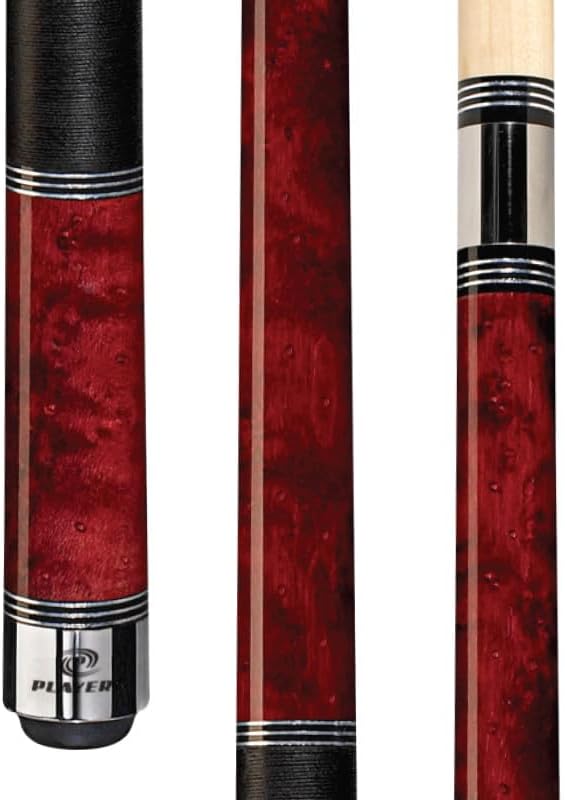
If you’re a beginner looking for a solid, well rounded pool cue, then the Players Classic C-960 is a great choice. Its made from North American Hard Rock Maple and is turned and dried seven times before being coated with Nelsonite, before finally being finished off with coat of high gloss epoxy. This process helps ensure the cue is moisture resistant, straight as an arrow, and helps prevent warping.
The Players Classic C-960 has lots of features that you’re sure to love. Its stainless steel joints look amazing and provide consistent feedback. It has a double pressed Irish Linen wrap which helps with sweaty hands and comes with a 13mm LePro leather tip. This cue is available in weights between 18-21oz and has a lifetime warranty for that little extra piece of mind! All in all, the Players Classic C-960 is a great budget friendly cue with lots of great features that any beginner would love.
Features:
- 58” Length
- 18-21oz Weight
- 2 Piece Cue
- Made From North American Hard Rock Maple
- Nelsonite Protective Coating
- High Gloss “Super UV Finish”
- Stainless Steel Joint
- 13mm LePro Leather Tip
- Irish Linen Wrap
- Lifetime Warranty
Intermediate Pool Cue
Lucasi Custom Sneaky Pete

The Lucasi Custom Sneaky Pete is a great pool cue for intermediate players. It has lots of upgraded features that make its functionality and playability far superior than that of a beginner cue. Being that this cue is a “Sneaky Pete”, it has a wrapless handle. It also has a wood to wood joint with a Uni-loc pin for quick break down. Available weights are 18-21oz in half ounce increments.
One of the best features of this cue is the Solid Core Low Deflection Shaft. If you’ve played pool for any length of time, then you know how much a LD shaft can improve your accuracy and your game as a whole. Its also topped off with a Tiger Everest tip for better chalk retention and cue ball control. If you’re an intermediate pool player and you like Sneaky Pete cues, definitely check out the Lucasi Custom Sneaky Pete.
Features:
- 58” Length
- 18-21oz Weight
- 2 Piece Cue
- Wrapless Handle
- Wood to Wood Joint
- Uni-loc Pin
- “Sneaky Pete” Cue
- 12.75mm Lucasi Custom Solid Core Low Deflection Shaft
- Premium Tiger Everest Tip
- Pro Taper
- Lifetime Warranty, (Even Against Warpage)
Professional Pool Cue
Lucasi Custom Super Birds-Eye

If you’re at this stage in the game, then chances are you know exactly what you want in a pool cue. You also know that Lucasi makes some very good pool cues and the Lucasi Custom Super Birds-Eye is no exception. This cue is geared towards the more advanced player, offering only the best in terms of materials and technology used in its construction.
This custom pool cue features beautiful stainless steel joints and a Uni-loc pin. Its also equipped with Lucasi’s custom low deflection shaft which will help improve accuracy by reducing the amount of deflection you experience. The butt of the cue features an Irish Linen wrap and beautiful 6 point blue luster inlays. The shaft is 12.75mm and features the wildly popular Zero Flexpoint Ferrule with traditional solid maple construction and a Tiger Everest tip, giving you the best of old school and new.
Overall, the Lucasi Custom Super Birds-Eye is a great cue for anyone nearing or at the professional stage in their career. All of its features coupled with its beautiful design make for a cue that will turn heads and outperform any cue it comes up against. You can check out the Lucasi Custom Super Birds-Eye here. You’ll be glad that you did.
Conclusion
As stated at the beginning of this article, the price of a good pool cue is dependent upon your needs as a player and your skill level. Don’t think that you have to spend tons of money to find a good pool cue, unless you’re at the level where it can be justified. If you need help trying to find a good pool cue or just more info on billiards in general, feel free to check out our other super helpful articles just like this one. Thanks for reading!
Other Articles You May Be Interested In
- The Ultimate Guide to Buying the Perfect Pool Cue
- Are Expensive Pool Cues Really Worth the Money?
- Are Cuetec Cues Any Good?
- What is a Sneaky Pete Pool Cue?
- Best Beginner Pool Cues Under $100
